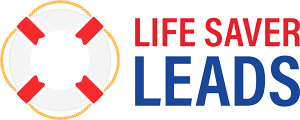Respecting privacy and adhering to regulations are crucial ethical considerations in any business, especially when dealing with sensitive information such as Life Saver Leads. Here are some key principles to consider:
- Data Protection Laws Compliance:
- Ensure that your practices comply with relevant data protection laws, such as the General Data Protection Regulation (GDPR) in Europe or the Health Insurance Portability and Accountability Act (HIPAA) in the United States.
- Understand the specific requirements and obligations imposed by these laws and implement measures to meet them.
- Informed Consent:
- Obtain informed consent from individuals before collecting and using their personal information.
- Clearly communicate the purpose of collecting data, how it will be used, and any third parties involved.
- Transparency:
- Be transparent about your data practices. Clearly communicate your privacy policy and make it easily accessible to individuals.
- Inform users about the types of data you collect, the reasons for collecting it, and how long you will retain it.
- Data Minimization:
- Only collect and retain the minimum amount of data necessary to fulfill the intended purpose.
- Regularly review the data you hold and delete any information that is no longer required.
- Security Measures:
- Implement robust security measures to protect the data from unauthorized access, disclosure, alteration, and destruction.
- Regularly update and patch software, use encryption where appropriate, and establish access controls.
- Employee Training:
- Ensure that employees handling Life Saver Leads are well-trained in privacy and data protection principles.
- Establish protocols for handling sensitive information and educate staff on the importance of respecting privacy.
- Third-Party Vetting:
- If you engage third-party service providers, ensure they also adhere to privacy and data protection standards.
- Conduct due diligence to vet their practices and compliance with relevant regulations.
- Right to Access and Correction:
- Respect individuals’ rights to access their personal information and correct any inaccuracies.
- Establish procedures for individuals to request access, corrections, or deletion of their data.
- Incident Response Plan:
- Develop a comprehensive incident response plan to address data breaches or privacy incidents promptly.
- Communicate effectively with affected individuals and regulatory authorities as required.
- Continuous Monitoring and Improvement:
- Regularly review and update your privacy practices to stay current with changing regulations and technologies.
- Conduct periodic privacy impact assessments to identify and mitigate potential risks.
By integrating these ethical considerations into your business practices, you can demonstrate a commitment to respecting privacy and complying with regulations when dealing with Life Saver Leads or any sensitive information.

Recent Comments